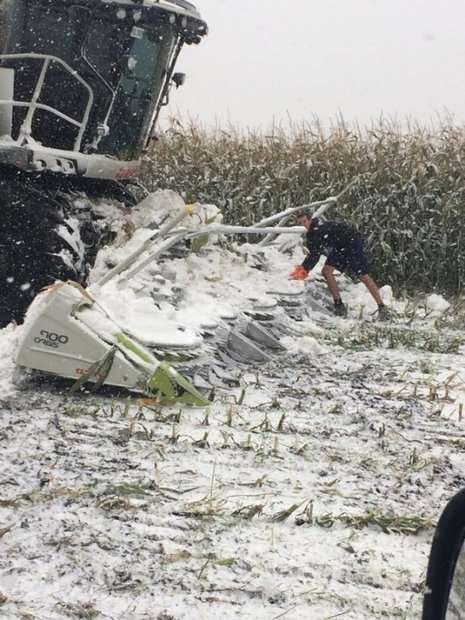Up to 40 per cent of crops still need to be harvested
By Diego Flammini
Assistant Editor, North American Content
Farms.com
Some farmers in Alberta were able to have a true long weekend. Not necessarily because they wanted to, but because Mother Nature forced them to.
“Not to have to work over Thanksgiving weekend and visit my family and friends was a bonus, but looking out the window to see it snowing steadily was really a challenge to truly enjoy Thanksgiving,” Humphrey Banack told CBC.
Banack, who farms southeast of Edmonton and is the first vice president of the Alberta Federation of Agriculture, estimates between 60 and 70 per cent of the province’s harvest is complete. He hopes some cooperative weather can help producers finish up.
“If we can get back out and harvest this crop and put it into the bin, the losses will be significantly less than if it has to overwinter,” he told CBC.
Glen Stankievech, who farms near Trochu, Alberta, told CBC the value of his barley crop could drop by as much as 50 per cent if he can’t finish harvesting until spring.

Snow in Alberta put a stop to harvest over Thanksgiving weekend.
Photo: Glen Stankievech
“A pay cut of half is huge,” he said.
Stankievech estimated he still has between $600,000 and $700,000 left in the field.
“That’s a real hit to our cash flow not to have that,” he said.